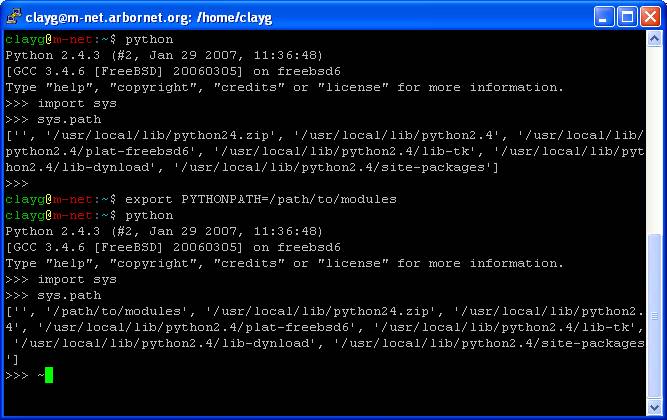I've been wanting to write this one for awhile anyway.
In retrospect it was rather naive - but I wonder who hasn't at one time tried to create a set of dictionaries:
|>>> parts = [
|... {'id':1, 'desc':'widget', 'detail':'rear widget'},
|... {'id':1, 'desc':'widget', 'detail':'front widget'},
|... {'id':2, 'desc':'gear', 'size':4},
|... {'id':3, 'desc':'cog', 'type':'green'},
|... ]
|>>> myset = set(parts)
|Traceback (most recent call last):
| File "
|TypeError: dict objects are unhashable
Dict objects are not hashable, read about hash tables and sets if it isn't obvious why it's important that objects in a set support a __hash__ method.
A hash function is really simple idea:
two equal objects MUST return the same hash
two un-equal objects should RARELY return the same key
But there's no really obvious reasonable way to implement hash on a dictionary of arbitrary keys and values.
Here's a couple dumb ideas for adding a hash function to a dict:
|def __hash__(self):
| key = 0
|def __hash__(self):
| id = 0
| for pair in sorted(self.items()):
| id += hash(pair)
| return hash(id)
And they "work" - at least in the sense that they remove the error:
|
|... def __hash__(self):
|... return self['id']
|...
|>>> myset = set([Part(x) for x in parts])
|>>> for part in myset:
|... print part
|...
|{'desc': 'widget', 'detail': 'rear widget', 'id': 1}
|{'desc': 'gear', 'id': 2, 'size': 4}
|{'type': 'green', 'id': 3, 'desc': 'cog'}
|{'desc': 'widget', 'detail': 'front widget', 'id': 1}
And that's great, if my parts list contained EXACTLY equal dictionaries they would be removed - I could turn it back into a list an continue on with everything uniquified! It might be worth nothing that the two parts with 'id' = 1 were not considered equal just because they returned the same hash. When there is a hash collision, the inhereited __eq__() method recognized that 'rear widget' != 'left widget' and that the two parts were distinct.
But what's really interesting what I've done by making a mutable object hashable...
It can be used as a dictionary key with surprisingly bad results:
|>>> part.__class__ # part is an instance of my Part class
|<class '__main__.Part'>
|>>> part # a mutable object with a hash function
|{'desc': 'widget', 'detail': 'front widget', 'id': 1}
|>>> mydict = {} # mydict is a plain dictionary
|>>> mydict[part] = 1 # i can use part as a key!
|>>> part['id'] = 2 # I then modify the key
|>>> mydict[part] # there is no value assigned to this new "modified" key
|Traceback (most recent call last):
|File "
| KeyError: {'desc': 'widget', 'detail': 'front widget', 'id': 2}
|>>> mydict # or is there?
|{{'desc': 'widget', 'detail': 'front widget', 'id': 2}: 1}
Here's a fairly reasonable attempt at making a custom class that is mostly mutable dictionary, but has a safe and reasonable hash function. I'll also over-ridden __eq__ to ignore minor differences in the 'detail' between objects.
|
So if parts is a list of build materials, and you wanted to know how many distinct parts it takes to build this thing... the above Part class might be the right track. Aside from the ambiguity of added by over-riding "==" like that... dose anyone see any other problems with this?




